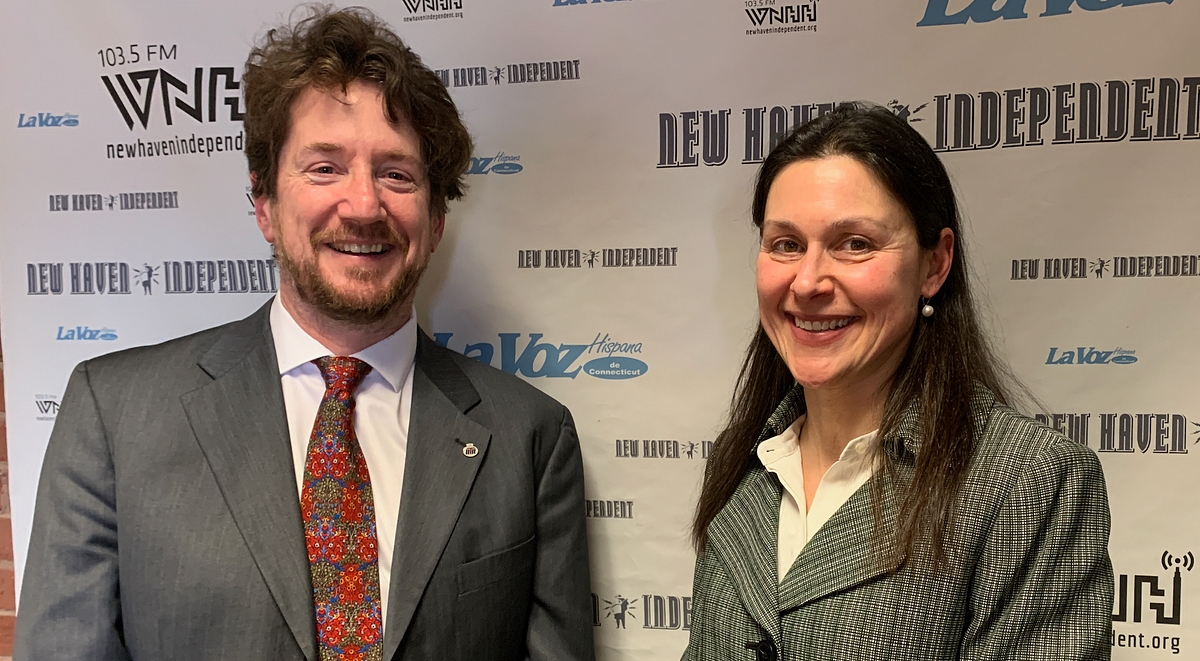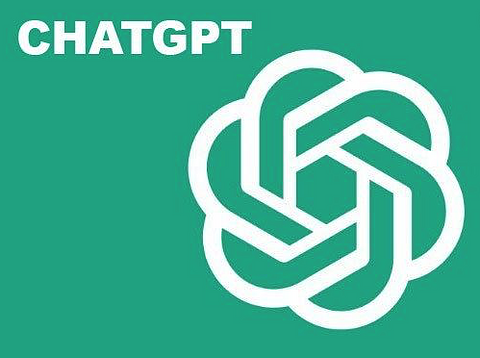
Alfred Guy and Jennifer Frederick at WNHH FM.

How to serve man?
ChatGPT did not write this sentence.
Or any part of this article.
A human did. At least for now.
I know this article is supposed to start with an example of how ChatGPT would write it. That’s been the format since the AI chatbox debuted in November: Surprise the reader with a dull but accurate, or convincingly creative, or 2001-like apocalyptic robot-takeover example of what the evolving tech tool can produce.
Those examples point out how pundits have initially reacted to ChatGPT, which can harness vast amounts of information to produce human-like responses in typed conversation.
But those examples don’t illustrate how Jennifer Frederick and Alfred Guy have reacted to ChatGPT.
They see no reason to freak out. They see some challenges posed by ChatGPT. They also see opportunities to improve schools and the teaching profession.
It matters what they think. Frederick and Guy have been studying the role of AI in learning and teaching in their respective roles at Yale. Frederick directs Yale’s Poorvu Center for Teaching and Learning and serves on the university’s College, Teaching, Learning and Advising Committee. Guy directs Yale’s undergraduate writing and tutoring program.
With a colleague named Ryan Wepler, they have also researched plagiarism, one of the initial communal freakouts about ChatGPT.
They’re not freaked out about plagiarism.
“We did a study of 15,000 submissions of student papers a few years back and found a vanishingly small number that we could find a source for on the internet,” Guy said during a joint conversation on WNHH FM’s “Dateline New Haven” program.
Yes, ChatGPT makes it easier to cut and paste unoriginal work that’s hard to trace, they acknowledged. Teachers will need to adapt to that.
But they’re more focused on how the challenges and opportunities presented by ChatGPT can lead to a broader discussion about using the tool to improve teaching. To help students to think critically and creatively.
“I said this about the pandemic: If all of our teaching and learning environments are turned upside down, then we kind of have to focus back on what’s essential,” Frederick said. “A lot of distance was traveled in a lot of places. Chat GPT presents some of the same opportunities. What’s hard is scaling. When people are responsible for lots of students, it does take time and attention to to teach well, regardless of any technology. Attention to good teaching: We have another reason to do that now.”
“We’re helping teachers think about moving towards more personalized assignments, getting students to have a higher investment in the project. But that takes labor, it takes human resources,” Guy stated. “I think some amount of feedback, small group work, students working with each other and on personalized projects, research projects, that’s the way to keep ChatGPT not an issue. Those things take human labor.”
The pair do envision chatbot-fueled disruption in some labor markets, replacing human jobs in areas like graphic design (and perhaps the writing of stories like these?).
Even Jeopardy may need to adjust.
Guy has been a contestant on the show before. Would he be willing to go head to head against ChatGPT?
“Since Watson crushed Ken Jennings,” Guy responded, “I have no chance against any AI.”
Click on the video to watch the full conversation with Jennifer Frederick and Alfred Guy on WNHH FM’s “Dateline New Haven” program. Click here to subscribe to “Dateline New Haven” and here to subscribe to other WNHH FM podcasts.




This is literally the beginning of a Phillip K. Dick sci-fi novel:
"The Penultimate Truth starts off with a PKD special — a speech writing machine! Enter a word, a concept, and out comes a phrase or sentence."